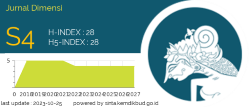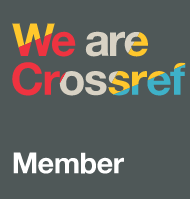PENERAPAN LEADER MEMBER EXCHANGE DALAM PENDIDIKAN KEJURUAN
Abstract
This article, proposed to change a patterns and the concept of leadership in vocational education. Vocational Leadership still have a political tendency or specific social groups, the selected leader which do not possess the skill and competence of course, the problem occur are unconducive of organizations school, hampered individual career and skill, organization school is no longer running on educational track, this very inhibited development of vocational education. The proposed concept is leader member exchange theory or LMX. Basic concept of Leader Member Exchange are mutual trust, mutual respect and taking charge in developing of organization, it is considered suitable to be applied in vocational education.
Full Text:
PDFReferences
Bass, B. M. (1985). Leadership and performance beyond expectations. New York: Free press.
Bass, B.M (2000) . The Future of Leadership in Learning Organizations. Journal of Leadership & Organizational Studies 2000; 7; 18. doi:10.1177/107179190000700302.Online diakses dari http://jlo.sagepub.com/cgi/content/abstract/7/3/18.
Bishop.R (2008). Effective Leadership for Educational Reform. Report to Nga Pae o Marmatamanga. Waikato University, diakses dari http://www.maramatanga.ac.nz
Calhoun.C. C dan Finch. A. V. 1982.Vocational Education Concept and Operation. Belmont, California. Wadsworth Publishing Company.
Evans.R.N dan Herr.E.L.(1978). Foundation of Vocational Education, 2nd edition. Columbus, Ohio. Charles E. Merril Publishing Company A Bell & Howell Company.
George, J.M., Jones, G.R. (2005). Understanding and Managing Organizational Behavior (4th ed.). New Jersey: Upper Saddle River.
Graen, G. B.; Uhl-Bien, M. (1995). "The Relationship-based approach to leadership: Development of LMX theory of leadership over 25 years: Applying a multi-level, multi-domain perspective".Leadership Quarterly 6 (2): 219–247. doi:10.1016/1048-9843(95)90036-5.
Laurie, J.M.(2005). Management and Organisational Behavior, 7thEdition, Essex: Pearson Education Limited.
Muhransyah.M (2013). Lelang Jabatan Kepala Sekolah, Kenapa tidak?, Surat kabar Radar Banjarmasin Jawa Pos Group, on line diakses dari http://www.radarbanjarmasin.co.id/berita/detail/57296/lelang-jabatan-kepala-sekolah-kenapa-tidak.html.
Ngoma.S (2011). The Impact of Leader-Member Exchange Theory on Education: Leveraging the Power of ‘In-Group’ and ‘Out-Group’ to Enhance School Effectiveness. On line, diakses dari http://www.congovision.com/science/NG-LMX-Paper.pdf
Northouse.P.G (2010) Leadership : Theory and Practice, Fifth Edition. Thousand Oaks, California : SAGE Publication.
OECD (2008). Improving School Leadership. Executive summaries. Online Diakses dari http://www.oecd.org/dataoecd/6/52/40545479.pdf pada tanggal 25 oktober 2013.
Permendiknas No.28 Tahun 2010. Tentang Penugasan Guru Sebagai Kepala Sekolah/Madrasah.online.diakses dari http://staff.unila.ac.id/radengunawan/files/2011 pada tanggal 22 Oktober 2013.
Robbins, S., and Judge, T. (2007). Organizational Behavior (12th ed.). New Jersey: Prentice Hall.
Tobing, D.S.K.L. (2009). Pengaruh Komitmen Organisasional dan Kepuasan Kerja Terhadap Kinerja Karyawan PT. Perkebunan Nusantara III di Sumatera Utara. Jurnal Manajemen Dan Kewirausahaan Vol.11, No. 1. Maret 2009: 31-37
DOI: https://doi.org/10.33373/dms.v3i3.96
Refbacks
- There are currently no refbacks.











